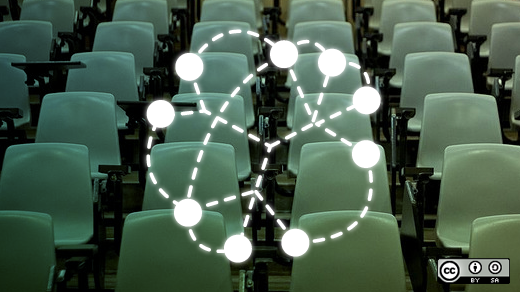 Emma Irwin is a participation designer at Mozilla who dedicates a lot of volunteer time to educating and empowering adults and youth on the web through making. She has a background as web developer and lives in a small Vancouver Island town with her husband and three daughters.
Emma Irwin is a participation designer at Mozilla who dedicates a lot of volunteer time to educating and empowering adults and youth on the web through making. She has a background as web developer and lives in a small Vancouver Island town with her husband and three daughters.
I recently caught up with Emma for an interview to learn more about the work she does on Mozilla's Participation Team and the broader Mozilla Project.

When you're not hacking on projects for Mozilla, what hobbies do you enjoy?
Hiking. I think being out in nature among giant trees and overlooking the ocean is the surest way to gain perspective and reenergize. Anything that involves my family being together and outside is my favorite day.
What inspired you to get involved with Mozilla?
I feel like I've always been a fan of Mozilla, since Firefox turned up in the early days of my career. I first interacted with that small community while working on Netscape 8, which used the Firefox rendering engine. The whole ethos and potential of open source was just so exciting. I became involved in a bigger way a few years back during the launch of the Webmaker project. As a mother, I saw the trend of youth becoming purely users of technology and products of the web. I had many great mentors and saw the opportunity to 'teach the web' as a way to pay that forward.
What inspires you to teach the open web?
Over the years I've run a number of hackathons for youth with others in my local community and in partnership with other open organizations (Open Data BC). Most recently, I've started teaching in schools with after school clubs and other in-school programming. I've also been very invested in a vision of open source contribution as a mechanism for learning the web, and I'm excited to be exploring that in a participation role at Mozilla.
Why is it important to get people involved in building the open web?
I think it's less about building the open web and more about building an understanding that the web belongs to everyone, that it can help us realize our greatest dreams for our families and the world. By teaching people—and especially youth—that the web is theirs to create, my thinking is they will protect it and move it forward. It's tough though. There's so much that feels like empowerment in some of the monopolies and walled gardens that actually isn't. Education is more important than ever.
What excites you most about educating open source contributors?
That would be a very long list of reasons, but primarily I want to show people why contributing to an open project is one of the most rewarding learning and personal growth experiences available anywhere. I'm especially excited about a project we're running right now that teaches qualitative research skills to market research contributors.
What have been the biggest challenges to education at Mozilla?
Education for Mozilla is a big topic. In my corner, education efforts are focused on helping people learn skills through participation. I think the biggest challenge is probably communicating the opportunity, and also finding people already skilled or experts in a topic to help mentor and teach.
Are you involved in any efforts to expose more women to opportunities to contribute to open source?
I was just at Makerfaire Vancouver on a panel talking about encouraging girls in STEM, so the short answer is yes. What I feel personally invested in is helping improve the odds that a woman stays working in technology after motherhood—I feel like there aren't many of us.
How does education at Mozilla compare to other open source projects?
I think all open source projects offer the opportunity to learn by doing. Mozilla is being deliberate about teaching and learning as part of participation, which is very cool and unique. My bigger vision is that we can help create some best practices and help other open projects do the same.
What kind of tools are you using in the work you do?
For education, I listen, learn, borrow, and collaborate with others on tools and content, most notably Teach like Mozilla (Laura Hilliger), P2PU (Course in a Box), and MDN. Tools are Github, Jekyll. I try to stay engaged with the larger open education community.
What makes you most excited about Mozilla's mission?
I feel a mix of excitement and panic that Mozilla is the key to protecting the open web and building the internet we need. Panic because I worry not enough people are listening, or understand what that means. I love working with Mozilla's community—an extended family.
If people wanted to meet you, what events are you attending in the upcoming months that they might attend?
Still working on this. Maybe Grace Hopper, maybe OSCON Amsterdam. I need to get out more!
Anything you would like to add?
I would love to hear from anyone with innovative ideas around teaching open source participation and Mozilla.
This article is part of Benjamin Kerensa's Open Web column, where he delivers the latest on what is happening in the open web, interviews with contributors to projects working on the open web, and his own perspectives on current open web news and events.






Comments are closed.